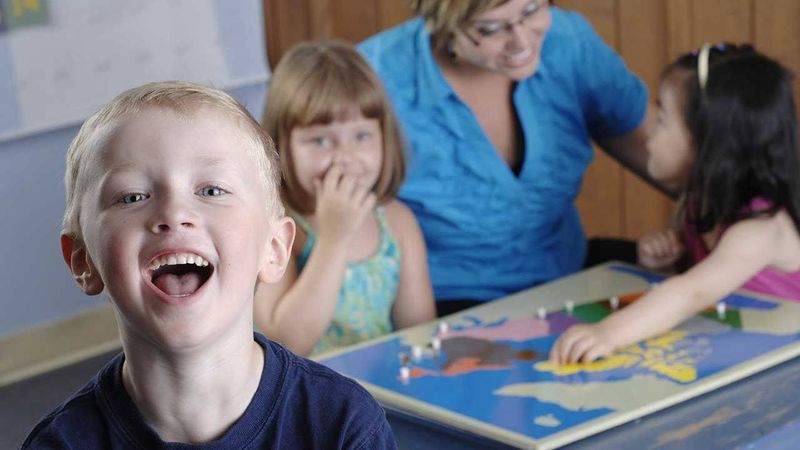16 Surprising Downsides Of Child-Centered Parenting

Child-centered parenting, where the child’s needs are prioritized above all else, seems like a noble approach. Yet, it can subtly impact both the child and the family dynamics in unexpected ways.
This style of parenting often leads parents to inadvertently overlook the long-term development of crucial life skills and relationships. As parents devote themselves to catering to their children’s every whim, they might unintentionally sideline other vital aspects of life, leading to surprising consequences.
From strained personal relationships to unpreparedness for adulthood, the effects can be far-reaching.
1. Kids grow up believing the world revolves around them

“Ever seen a child who believes they’re the center of the universe? When parents consistently prioritize their children’s desires above all else, kids can internalize a sense of entitlement. This attitude may lead to difficulties in understanding others’ perspectives.
Over time, these children might struggle to foster meaningful relationships because they expect others to cater to their needs. They could face challenges in teamwork and collaboration, crucial skills in both personal and professional life.
This mindset, instilled early, can create hurdles in adaptability and empathy. A balanced approach, where children learn to appreciate the give-and-take nature of relationships, is essential for holistic development.”
2. Parents’ relationships often take a backseat

“When children take center stage, parents often find their own relationship sidelined. It can be tempting for parents to focus all their energy on their kids, but this can leave their partnership neglected.
Over time, this dynamic might erode the emotional connection between partners. They may find conversation dwindling to child-related topics alone. This lack of shared experiences outside parenting can create a relational void.
Maintaining a healthy partnership is crucial not only for the parents themselves but also as a model for children. A strong parental relationship showcases mutual respect and love, teaching children essential values in their future relationships.”
3. Children struggle with delayed gratification later in life

“Instant gratification is a double-edged sword. Children raised with immediate responses to their every whim can struggle with patience. They grow accustomed to having desires fulfilled without delay, leading to frustration in real-world scenarios.
Later in life, these children may find it challenging to wait for results or rewards, impacting their personal and professional growth. In a world that often requires perseverance, this lack of patience can be a significant hurdle.
Teaching children the value of waiting and working towards goals is crucial. It builds resilience and prepares them for life’s complexities, ensuring they appreciate accomplishments more deeply.”
4. Over-involvement stifles independence

“Hovering parents might unintentionally clip their children’s wings. Constant involvement in every aspect of a child’s life can hinder their ability to develop autonomy. When parents solve every problem, children miss out on learning critical problem-solving skills.
This over-involvement can lead to dependency, where children feel unable to tackle challenges without guidance. They might lack confidence in making decisions and fear taking risks.
Allowing children the freedom to make mistakes is essential. It fosters independence and self-assurance, qualities that are key to navigating adulthood. A balanced approach helps children grow into capable, confident individuals.”
5. Siblings may develop unhealthy rivalries for attention

“Sibling rivalry is a tale as old as time, but it can be exacerbated in a child-centered home. When parents focus heavily on one child’s needs, siblings may feel compelled to compete for attention. This competition can foster resentment and discord.
A lack of balanced attention can create feelings of neglect in siblings, leading to strained relationships that might persist into adulthood. The rivalry may discourage cooperation and empathy among siblings.
By ensuring each child feels valued and loved, parents can cultivate a supportive environment. Encouragement and equal attention can transform potential rivalry into lifelong camaraderie.”
6. Adults lose their personal hobbies and identities

“Parents may find their personal interests slipping away in the wake of child-centered parenting. As they dedicate more time to their children’s activities, their own hobbies may be unintentionally abandoned.
This loss can lead to a diminished sense of self and personal fulfillment, as adults struggle to maintain their identities beyond parenthood. Over time, this can result in feelings of dissatisfaction and regret.
Retaining personal interests is vital for mental health and self-worth. Parents are more than just caregivers; they’re individuals with unique passions. Embracing these interests enriches both the parent and the family unit.”
7. Kids can’t handle “no” or rejection gracefully

“Handling rejection is an essential life skill, but some children struggle with the word “no.” In environments where their desires are frequently prioritized, they might find rejection jarring.
This inability to cope with “no” can result in heightened emotional responses, such as anger or disappointment, in everyday situations. As they grow, this becomes a challenge in academia, careers, and relationships.
Teaching children that they can’t always have their way fosters understanding and resilience. Learning to accept and grow from rejection equips them for the inevitable ups and downs of life.”
8. Boundaries between parent and child blur dangerously

“In a child-centered home, boundaries can blur. When parents prioritize friendship over parenting, roles and expectations become muddled. Children may lack a sense of authority and respect, leading to difficulties in discipline.
A blurred boundary can create confusion about the relationship’s nature, complicating parental authority. Children might struggle to understand the difference between peer and parental interactions.
Maintaining clear boundaries is crucial for healthy development. While it’s important to be approachable, parents must also establish authority and guidelines. This balance fosters respect and a supportive environment for growth.”
9. Entitlement replaces gratitude in small ways

“Small gestures of gratitude can make a difference, yet children raised in a child-centered environment might miss this lesson. When accustomed to having their desires met, they may overlook the importance of appreciation.
This entitlement can manifest in everyday interactions, where gratitude is replaced by expectation. It affects relationships, as others might perceive them as ungrateful or spoiled.
Instilling gratitude is an essential part of upbringing. Encouraging children to recognize and appreciate what they receive nurtures empathy and kindness, crucial traits for building positive relationships and a fulfilling life.”
10. Parents feel constant burnout and resentment

“Burnout is a silent thief in child-centered parenting. Constantly prioritizing children’s needs can leave parents feeling drained and overwhelmed. The relentless demands can result in physical and emotional exhaustion.
This burnout may breed resentment, as parents struggle to find time for themselves or their own needs. It can lead to strained relationships and a diminished quality of life.
Finding a balance is crucial. Parents need to recognize the importance of self-care and personal time. By nurturing themselves, they become better caregivers, fostering a healthier family environment.”
11. Children lack resilience when life gets tough

“Resilience is forged through challenges, yet overly sheltered children might lack this vital trait. In child-centered homes, parents often shield their children from difficulties, preventing them from developing coping mechanisms.
This protection can lead to difficulties in handling adversity, as children may not have learned how to navigate life’s hurdles. In adulthood, this translates to challenges in both personal and professional realms.
Encouraging children to face and overcome obstacles builds resilience. It prepares them to tackle life’s inevitable challenges with confidence and determination, equipping them for a successful future.”
12. Friendships outside the family suffer for parents

“Parents might find their social circles shrinking as they focus entirely on their children. When children’s needs consume their time, friendships can take a backseat. Over time, this isolation may lead to a loss of support networks.
Neglecting friendships can leave parents feeling lonely and disconnected. Social interaction is important for mental wellness, providing emotional support and a sense of community.
Maintaining friendships is vital. It enriches parents’ lives and offers a broader perspective on challenges. Balancing family time with social interactions encourages a healthier, more fulfilling life for parents.”
13. Kids expect external validation instead of self-worth

“In a world where validation is often external, child-centered parenting can exacerbate this focus. When children receive constant praise and attention, they might rely on external validation for self-worth.
This dependency can lead to a fragile self-esteem, heavily influenced by others’ opinions. It affects their ability to find internal motivation and confidence, necessary for personal growth and fulfillment.
Encouraging self-worth independent of external factors is crucial. Children should learn to value their own achievements and qualities, fostering a strong, self-reliant identity that withstands societal pressures.”
14. Parents overcorrect and create perfectionist tendencies

“In striving for the best, parents might inadvertently instill perfectionism in their children. When high expectations are coupled with constant correction, children may feel pressured to achieve flawless results.
This perfectionism can lead to stress and anxiety, as children fear failure and judgment. It stifles creativity and willingness to take risks, essential components of learning and growth.
Encouraging effort over perfection helps children appreciate the learning process. Emphasizing growth and resilience over flawless outcomes fosters a healthier attitude towards challenges, paving the way for lifelong learning.”
15. Extended family bonds weaken over time

“In a child-centered household, extended family ties may weaken. When parents focus solely on their nuclear family, connections with extended relatives often suffer. This distancing can lead to lost traditions and shared experiences.
Weakened bonds may result in a lack of support network, depriving children of valuable relationships with grandparents, aunts, uncles, and cousins. These connections enrich cultural identity and provide diverse perspectives.
Balancing immediate family time with extended family interactions is important. It nurtures a sense of belonging and connectivity, ensuring children grow up with a rich tapestry of familial relationships.”
16. Kids grow up unprepared for adult responsibilities

“Adulting is hard, especially for those unprepared. Child-centered parenting can leave young adults lacking essential life skills. When parents do everything, children miss opportunities to learn responsibility.
These skills, from financial management to everyday chores, are crucial for a smooth transition to independence. Without them, young adults may struggle with basic tasks, leading to frustration and setbacks.
Teaching responsibilities early fosters self-sufficiency. Encouraging children to participate in household tasks and decision-making prepares them for the responsibilities of adulthood, ensuring they’re ready to face the world confidently.”
